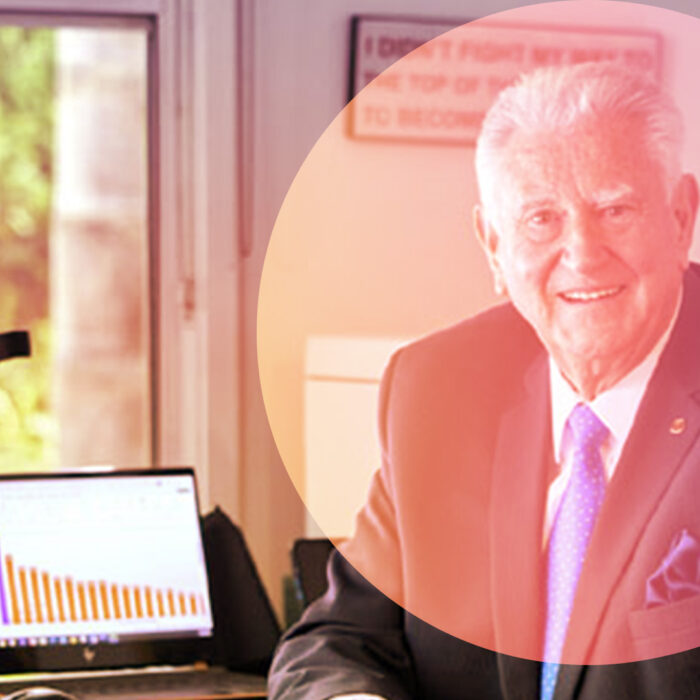Specialist aged care-qualified advisers are growing in number. We talk to three who have recently completed specialised education in the area to meet client demand.
We have an ageing population and aged care legislation that continues to change and increase in complexity. Whether it’s for current clients, their parents, or for new clients, there is a growing need for aged care advice.
Good advice, from someone with knowledge of the aged-care system, can make a measurable financial difference to people accessing aged care.
These three advisers have recently undertaken training in the area, joining more than 2500 others who have completed the Aged Care Steps Accreditation Professional program and are now recognised as FAAA Aged Care Specialists.
Jo Stenzel
 Senior wealth adviser, Shaw and Partners, Brisbane
Senior wealth adviser, Shaw and Partners, Brisbane
Jo has been in the profession for more than 35 years, firstly as a paraplanner and then as an adviser.
Prior to her role at Shaw and Partners, she was working in the private wealth arm of a major bank. Not being able to provide aged care advice was one of the reasons she chose to move to Shaw and Partners.
Jo navigated the aged care system with her parents a couple of years ago and saw the need for specialist advice in this area. “I wanted to help people who need that personalised advice and for people where every penny counts,” she said.
“Aged care is more complex with the new and grandfathered rules. Some people qualify for the grandfathered rules and daily fees but must pay the Refundable Accommodation Deposit (RAD) under the new rules. There’s been a lot of different things you need to pay attention to.
“Often clients come to an adviser at a critical point – where someone has been admitted to hospital and then find they can’t return home. At that point, they’re looking for accommodation options, but they also need to navigate the financial situation.”
Jo says people today are more aware of the need for aged care advice. She has provided advice for clients as well as calculations to give them different scenarios – for example, selling the family home, not selling the home, paying the full RAD, paying a portion of the RAD up front or just paying daily payments.
Typically, people seek aged care advice if either they or a parent have been told they need to go into aged care. When this happens, it’s usually urgent, and accessing specialist advice is critical.
Jo says she uses a fee scale of between $5000 and $10,000 but may also charge a percentage fee if there’s a need for ongoing service which can be quite complex.
“If I’m dealing with wealthy, high net worth clients, they need a lot of cash flow because their means test fees will be high and they’ve got a lot of other assets to manage. So, we may have to modify some of their assets to be more income producing. We may have to sell assets, liaising with accountants to determine capital gains tax consequences of any sales.”
Jo is very passionate about aged care because of her personal experience.
“I didn’t need to understand aged care until my parents needed to go into aged care. It was a crisis issue. That opened my eyes to the need for aged care advice, and I started studying,” she said.
“It’s been really a very important part of my life and still is. After discussions with other people, I saw the need to expand my knowledge and become a specialist, because there aren’t enough.
“It doesn’t matter how much you’re worth. At some point in your life, you may need to go into aged care. It’s an important part of any sort of retirement plan. [Advisers] need to make sure that people are aware of what may happen down the track.”
Angus Cooper CFP®
 Managing director, ACru Wealth Financial Advisory, Sunshine Coast
Managing director, ACru Wealth Financial Advisory, Sunshine Coast
In the past, Angus had happily referred clients with aged care advice needs to specialists he knew and trusted because they were good at it. But this year he decided to take the plunge and do the aged care accreditation course.
“It’s a need that’s not going away,” Angus said.
Angus said he’d wanted to do the course for some time but another planner at his practice had been the dedicated aged care specialist while he had specialised in SMSFs because of his accounting and tax background.
Aged care advice has not always been seen as profitable for the adviser to provide. However, that is changing.
Angus said his practice follows a policy that if they can quantify a benefit, they’ll make sure it’s in bold in the advice document. “Everyone connects with the numbers: you know you if you spend $5 and get $10, it’s a lot easier to spend $5.”
Angus said he wants to be able to take clients on the logic journey which he says is easy to illustrate in aged care advice. “I want to be able to say we can do this or that – and we think this is a better decision and here’s why,” he said.
There is also the value of providing this service to clients and setting up an intergenerational and familial experience.
“We recently had two clients whose parents needed aged care advice. They asked who they could talk to about it. It’s nice to be able to say, well, that can be us,” Angus said.
“In both instances it’s not been the client that we already had the relationship that’s driving the age care management for mum or dad, it’s been a sibling and for me that’s been a lovely way for them to get a little bit about of proof in the pudding about how advice can be so valuable.
“The sibling can see [that the adviser] has done such a good job of trying to get them across a complex area. And to have someone vindicate the decisions they’re on the cusp of making or helping them do it is even better.”
They then better understand why their brother or sister is paying the adviser for advice, Angus said.
Teagan Curtin
Director, PRP Advisers, Wollongong
 Teagan first earned her aged care accreditation around eight years ago, but was working in a broking business where she didn’t need to use it. Around three years ago, she re-did it and then earlier this year did a refresher to be up-to-date with the latest legislation.
Teagan first earned her aged care accreditation around eight years ago, but was working in a broking business where she didn’t need to use it. Around three years ago, she re-did it and then earlier this year did a refresher to be up-to-date with the latest legislation.
Teagan’s business is made up of pre-retirees, retirees and small business owners. They are mostly looking at alternative investment options, but aged care is now becoming a consideration that needs a full-blown conversation.
Clients are hearing a lot more in the marketplace around the cost of care and what they can do, she said.
“A lot of people are seeking very specific information, so we’re looking at doing some seminars and things which will then tie in with advice around one-off aged care service.”
Teagan said aged care is in a lot more of the conversations she’s now having with clients.
For much of her client base, Teagan is talking about aged care mostly for their parents. However, she is also dealing with the demographic that is going into care – and in that situation there is an opportunity to talk to their kids.
“That’s where I think you get the rewards in providing aged care advice. You know you’re helping people navigate very complex situations, and making it a bit easier and more understandable,” Teagan said.
Currently, Teagan’s practice only offers aged care advice to current clients. The cost for new clients hasn’t been established.
In the first instance, Teagan will prepare a strategy paper and have a look at the potential bottom line for cash flow, running a few different scenarios through the calculators.
“You’re often dealing with more than one power of attorney or guardian in place, and you either deliver the advice twice or you arrange group meetings. Sometimes it takes a bit longer because there are differing opinions,” she said.






